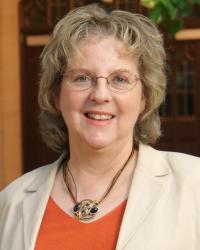DEAN’S MESSAGE: Improved accountability could elevate teaching profession to deserved status
Improving the quality of teacher preparation–a perennial topic in American education–has received renewed attention under the Obama administration, and U.S. Secretary of Education Arne Duncan has made several high profile speeches recently that underscore the need to elevate the teaching profession.
 Specifically, in an article he wrote for American Educator (Winter 2009-10), Duncan suggested that “teaching, in short, should be one of the nation’s most revered professions. Teachers should be amply compensated, fairly evaluated, and supported by topnotch professional development.” He noted that this approach has not been followed in over 50 years, and posed the question as to what factors would increase public perception of teaching as a true profession.
Specifically, in an article he wrote for American Educator (Winter 2009-10), Duncan suggested that “teaching, in short, should be one of the nation’s most revered professions. Teachers should be amply compensated, fairly evaluated, and supported by topnotch professional development.” He noted that this approach has not been followed in over 50 years, and posed the question as to what factors would increase public perception of teaching as a true profession.
I encourage readers who are interested in Duncan’s answers to read the article, but I would like to consider his question in the context of the work we do at UF’s College of Education, and in relation to the new standards from our national accreditation organization, the National Council on Accreditation of Teacher Education (NCATE).
The College, continuously accredited since 1954, has long held a commitment to program quality, candidate performance, and continuous improvement and innovation. Last week, we concluded our most recent joint accreditation review by NCATE and the Florida Department of Education; while we still need to receive the official reports, I am pleased and proud to say we met all NCATE standards with no needs for improvement cited, and we received full state program approval for all 19 UF education programs (which also include affiliated programs in agricultural, art, and music education, and programs in counselor education, educational leadership, and school psychology).
Additionally, both teams singled out considerable strengths for special praise. For FLDOE, these areas were:
1) faculty commitment to professional preparation and to improving educational outcomes for P-12 students,
2) quality relationships with school partners,
3) candidate quality clearly tied to their programs of study,
4) consistent candidate reports of strong faculty mentoring, and,
5) active involvement of campus and school leadership for professional education.
NCATE examiners emphasized particular strengths in 4 of the 6 professional standards:
Standard No. 1. The review team noted that candidates in many of our programs have exceptional understanding of what it means to impact student learning and development. We believe the teacher inquiry model we use helps our candidates gather student data to plan, teach, assess, and then reflect on the quality of their instruction;
Standard No. 3. The team was extremely impressed with the quality and extent of the authentic, collaborative partnerships many of our programs have with schools, and our commitment to making a difference in schools and communities;
Standard No.4. The deep work by faculty and candidates in high-poverty schools was recognized as exceptional for some of the same reasons stated in Standard 3; and,
Standard No. 5. The team identified engaged scholarship as an important aspect of faculty work, especially for a college of education that wants to demonstrate that its research, teaching, and service activities benefit the broader educational community. They noted that our commitment to work in schools has the potential to significantly improve education.
If teaching is to become widely recognized and acknowledged as the rigorous profession that it should be, all preparation programs should meet national accreditation standards that not only address issues of program quality and continuous improvement, but also the impact teacher candidates have on student learning in P-12 settings.
We have taken some preliminary steps to do that, and along with other SUS institutions we will collaborate with the FLDOE and the Florida Board of Governors on a more extensive study of the effectiveness of our graduates in improving student learning.
Finally, the approaches we have taken in the College of Education are similar to the ones advocated by the recently formed NCATE Blue Ribbon Panel on Clinical Preparation and Partnerships on Improving Student Learning. Florida is well represented since both Education Dean Larry Daniel (University of North Florida) and I are members of the panel.
Given all these new emphases, we as a society may finally be at a point where one of the most significant and influential professions – teaching – receives its just and overdue recognition for preparing the next generation of citizens to contribute to the public good.
— Catherine Emihovich, Professor and Dean




